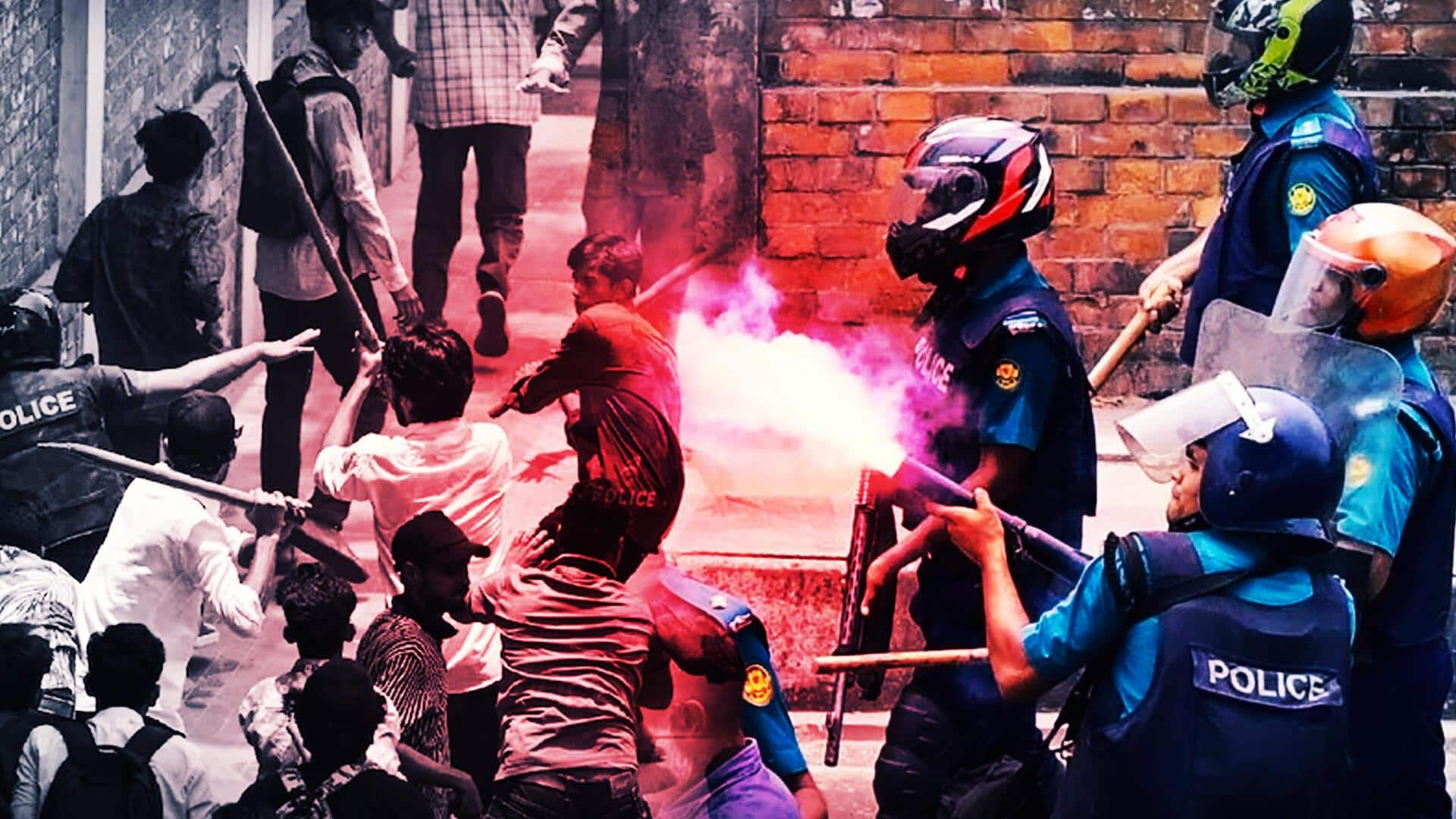
Dhaka University students clash with paramilitary force, 50 injured
What's the story
Violence broke out in Dhaka—Bangladesh's capital city—on Sunday night when students confronted paramilitary personnel demanding job regularization.
According to The Daily Star, at least 50 people were injured.
The clashes started around 9:20 pm near the Secretariat after Dhaka University students responded to reports that Ansar members, part of a paramilitary auxiliary force, had detained several students, including student leader Nahid Islam.
The students reportedly attempted to break up the Ansar protest, which was calling for permanent employment.
Student response
Students rally against 'agents of autocracy'
During the confrontation, both sides hurled bricks and engaged in physical clashes.
Police and military forces were deployed to restore order.
Earlier that day, the Ansar members had called off their protest after receiving assurances from Lieutenant General (Retired) Jahangir Alam Chowdhury, the interim government's home affairs adviser.
However, tensions persisted as the students accused the Ansar force of breaking their agreement.
Unresolved issues
Tensions remain high despite assurances
Student protest coordinator Hasnat Abdullah blamed former Ansar director general Major General AKM Aminul Haque for continuing to block access to the Secretariat despite resolved demands.
"The autocratic forces are trying to make a comeback through the Ansar force...Even after their demands were met, we were kept locked in the Secretariat," Abdullah said in a Facebook post.
This call led to over a thousand students—many armed with sticks—converging on the Secretariat where they encountered Ansar members leading to further violence.
Accusations and defense
Ansar demonstration accused of larger conspiracy
Information and broadcasting adviser Nahid Islam, who was among those initially detained, accused the Ansar demonstration of being part of a larger conspiracy.
"We will take legal action against those involved," Islam told reporters.
In response to these accusations, Major General Abdul Motaleb Sazzad Mahmud, director general of Ansar and Village Defence Force, defended his force by stating that those who continued the protest "are not Ansar members. They are outsiders."
Background
Bangladesh's political crisis explained
This comes just days after the student protests in the country.
The protests—which started in July with demands to abolish civil service job quotas—quickly grew into a wider anti-government movement. Over
230 people were killed in the nationwide violence following the fall of former Prime Minister Sheikh Hasina's Awami League government, raising the death toll to over 600 since the protests began.
Hasina's government was succeeded by an interim administration, with Nobel laureate Muhammad Yunus appointed as its chief advisor.